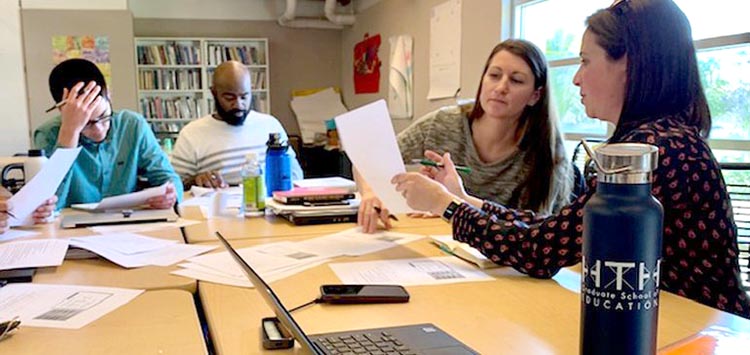
From K-12 Dive
By Shawna De La Rosa
May 24, 2021
Dive Brief:
After a challenging year for educators, administrators can encourage and retain teachers by taking time to listen to them and ask about their opinions, strategies and plans, Darcy Bakkegard, a teacher ambassador for Prairie Public Broadcasting whose background includes teaching English and theater and serving as a professional development coach, writes for Edutopia.
Office hours and end-of-year interviews will reveal what worked during this complicated year, what prevented students’ success and factors contributing to burnout. Administrators can also inspire teachers by pointing out where they excel during classroom assessments.
Staff are inspired when they are trusted, Bakkegard writes, noting the importance of letting them design their own professional development whenever possible and giving them support and time to hone their skills. They also need time to recover after this challenging year.
Dive Insight:
The coronavirus pandemic put significant strain on educators this year, prompting many to leave the profession. Attempting to teach both in-person and remotely in hybrid models has proven to be a difficult, burnout-inducing task in particular. Educators are also seeing more students depressed and anxious from isolation.
A report from the Colorado Department of Education and Colorado Education Initiative shows an average of 6% leaving the profession in that state and 2% taking leaves of absence. And a poll of Illinois Education Association members found more than a third of educators reporting they had considered a career change, with 66% suggesting they are more burned out than usual. Additionally, 12% of the teachers said they didn’t want to teach anymore, 10% were considering early retirement, and 13% said last year’s experience has made them re-evaluate their “career path.”
Pandemic burnout has stretched to all levels of school districts, highlighted by the resignations of superintendents in the nation’s three largest school systems — New York, Los Angeles and Chicago. In addition to strain from navigating the sometimes conflicting demands of parents and community members, the pandemic also complicated the already challenging political environments superintendents face, stressing relationships between school and city leaders.
Photo: Linda Jacobson/K-12 Dive
Read this and other stories at K-12 Dive

